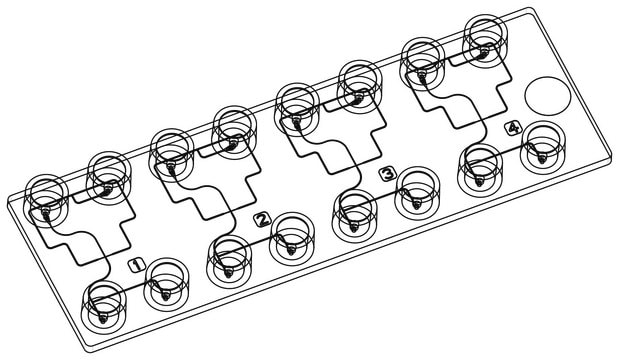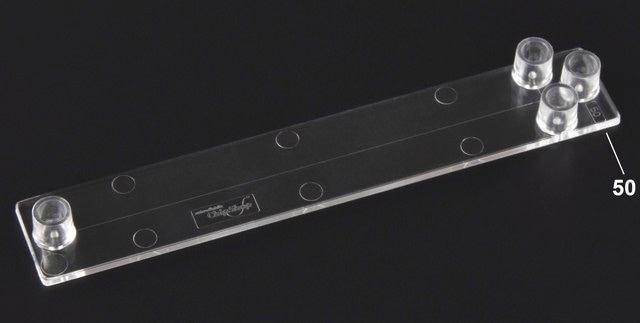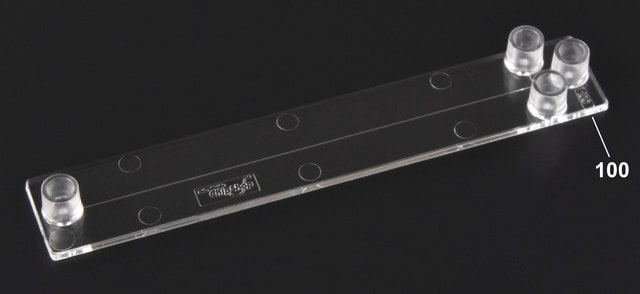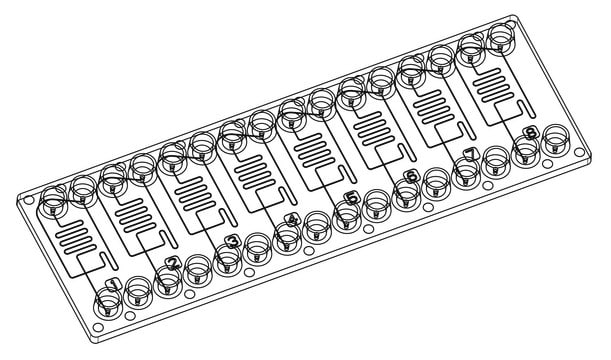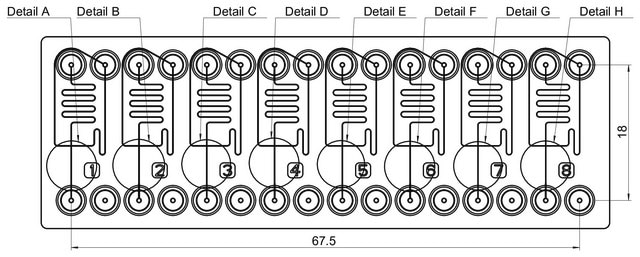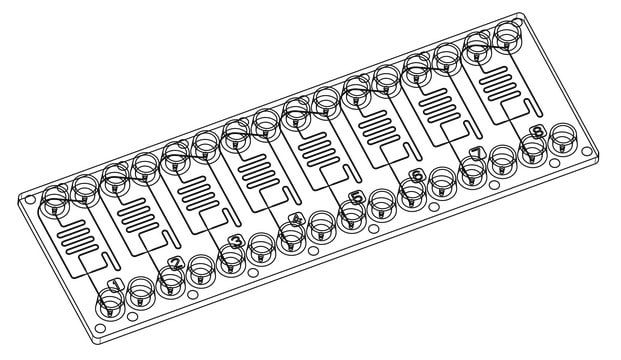924660
Cross-shaped channel chip - 400 μm channel
Fluidic 395, PMMA with Luer Interface
Synonym(s):
Microfluidic
Sign Into View Organizational & Contract Pricing
All Photos(3)
About This Item
UNSPSC Code:
42142600
NACRES:
NA.25
Recommended Products
Application
This is a cross-shaped channel chip with extended size platform I with electrodes (non-contact mode) and a Luer fluidic interface. This variation of the cross-shaped channel chips includes electrodes that can be used for the detection of charged molecules, for example. The material of the electrodes is 10 nm titanium and 100−150 nm gold. The electrodes are placed on the cover lid and assembled towards the atmosphere, resulting in electrode and the liquid to be analyzed having no contact. The use of these chips with this electrode arrangement requires a special instrumentation set-up. This detection technology is called C4D (capacitively coupled contactless conductivity detection).
Cross-shaped channel chip - 400 μm channel, Fluidic 395, polymethyl methacrylate (PMMA) with Luer Interface
Cross-shaped channel chip - 400 μm channel, Fluidic 395, polymethyl methacrylate (PMMA) with Luer Interface
Certificates of Analysis (COA)
Search for Certificates of Analysis (COA) by entering the products Lot/Batch Number. Lot and Batch Numbers can be found on a product’s label following the words ‘Lot’ or ‘Batch’.
Already Own This Product?
Find documentation for the products that you have recently purchased in the Document Library.
Sharma T Sanjay et al.
Advanced drug delivery reviews, 128, 3-28 (2017-09-19)
Conventional systematically-administered drugs distribute evenly throughout the body, get degraded and excreted rapidly while crossing many biological barriers, leaving minimum amounts of the drugs at pathological sites. Controlled drug delivery aims to deliver drugs to the target sites at desired
Dongfei Liu et al.
Lab on a chip, 17(11), 1856-1883 (2017-05-10)
The microfluidic technique has brought unique opportunities toward the full control over the production processes for drug delivery carriers, owing to the miniaturisation of the fluidic environment. In comparison to the conventional batch methods, the microfluidic setup provides a range
Our team of scientists has experience in all areas of research including Life Science, Material Science, Chemical Synthesis, Chromatography, Analytical and many others.
Contact Technical Service